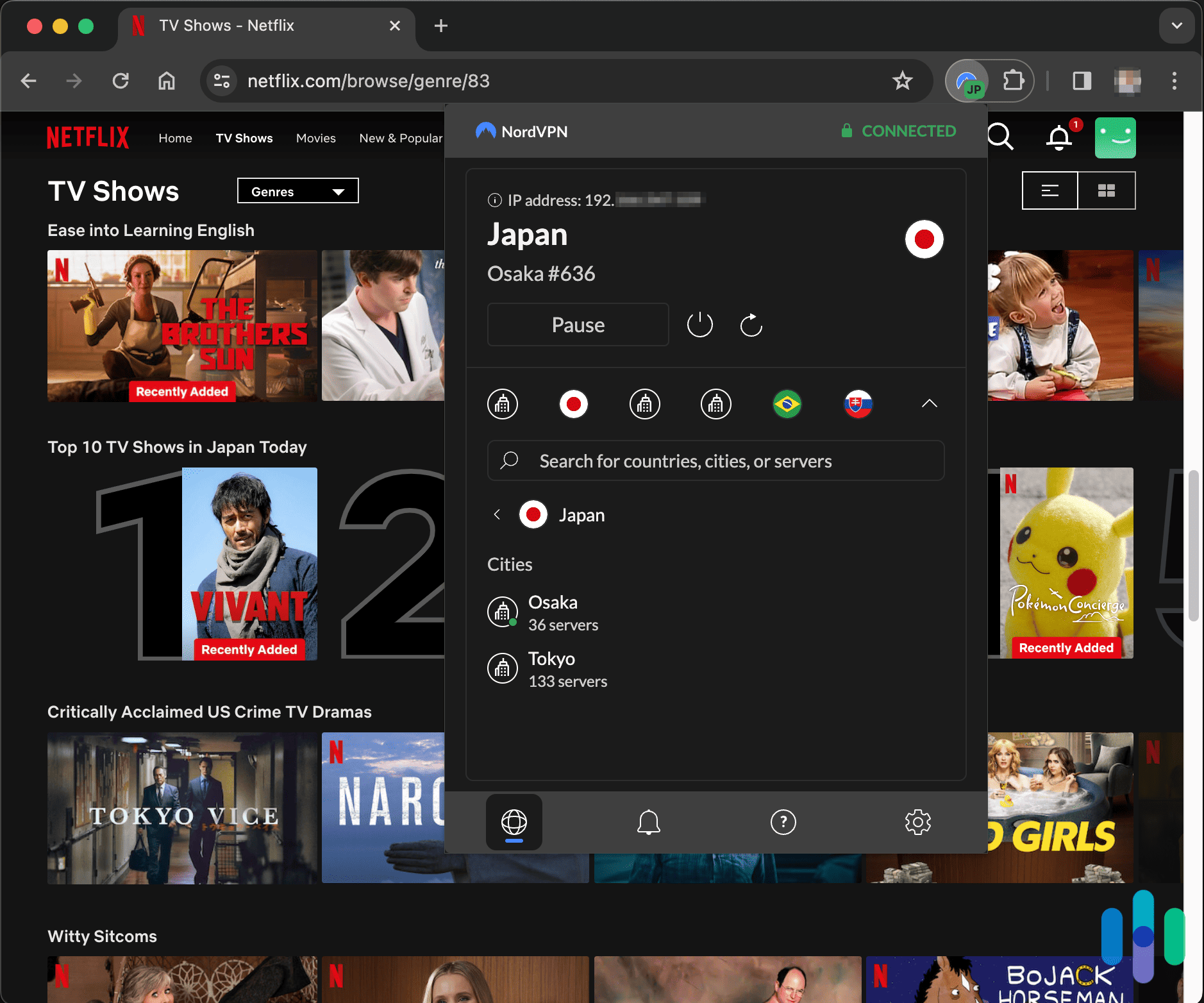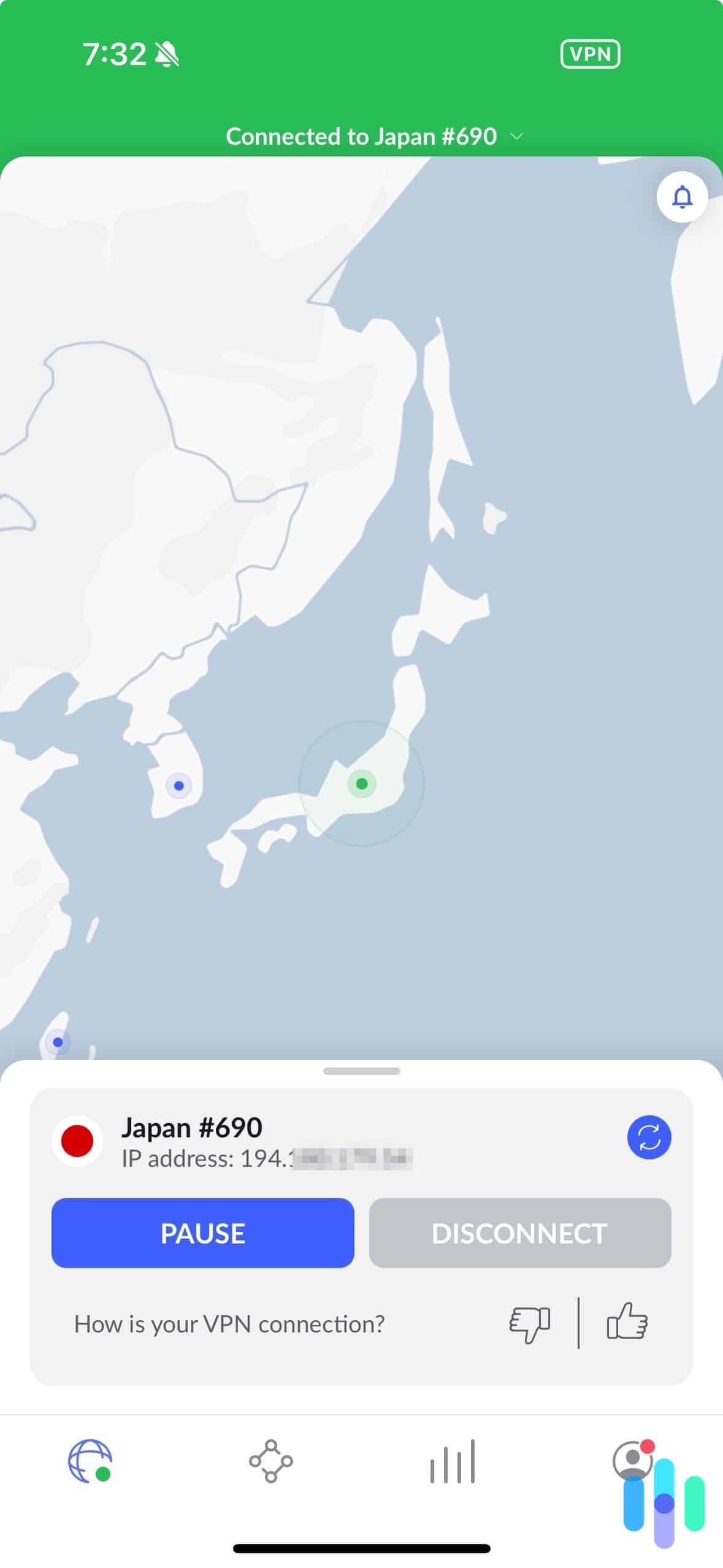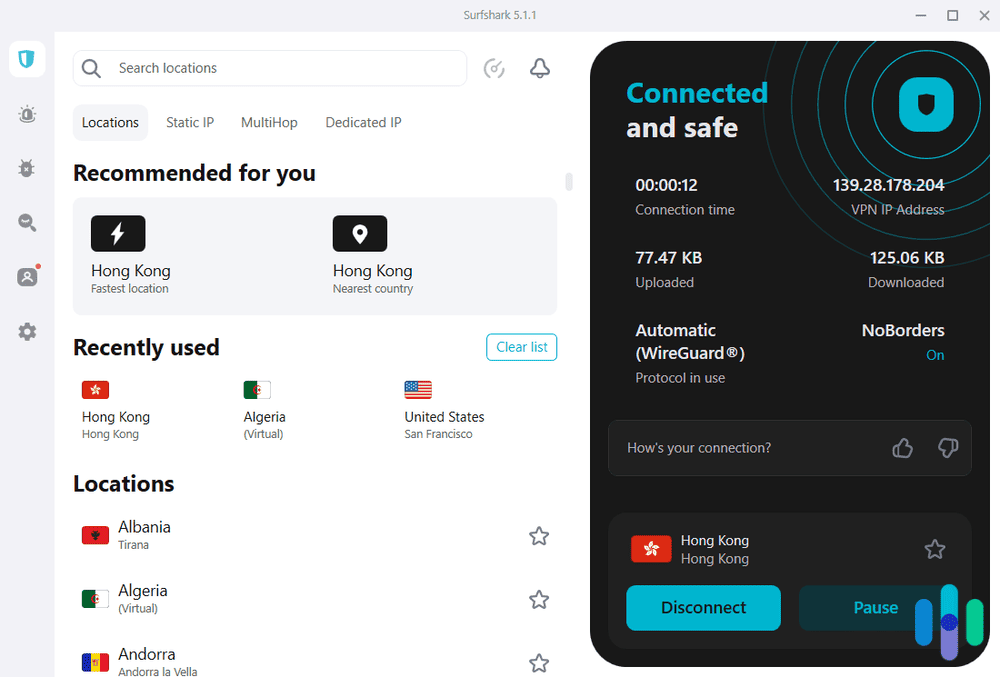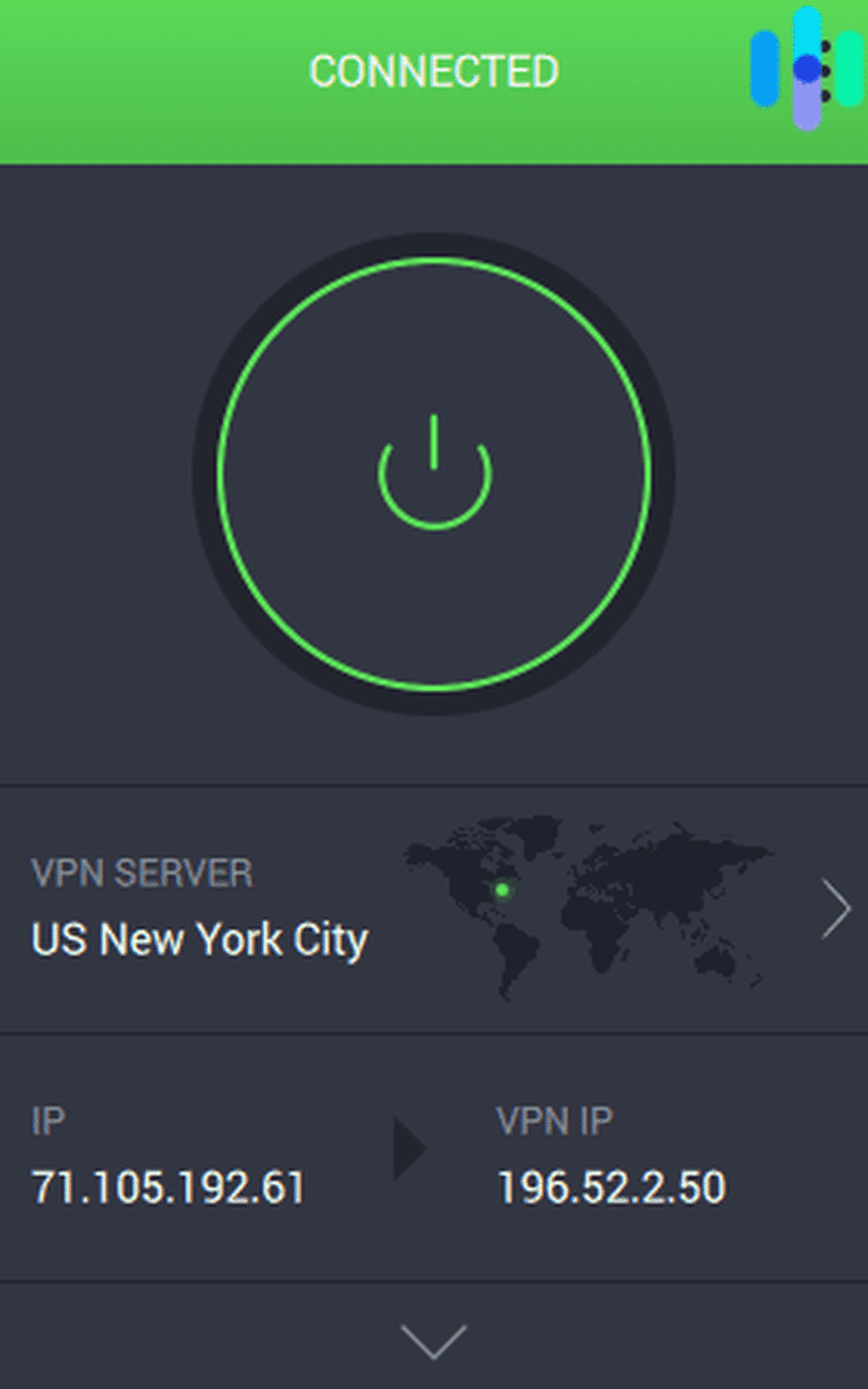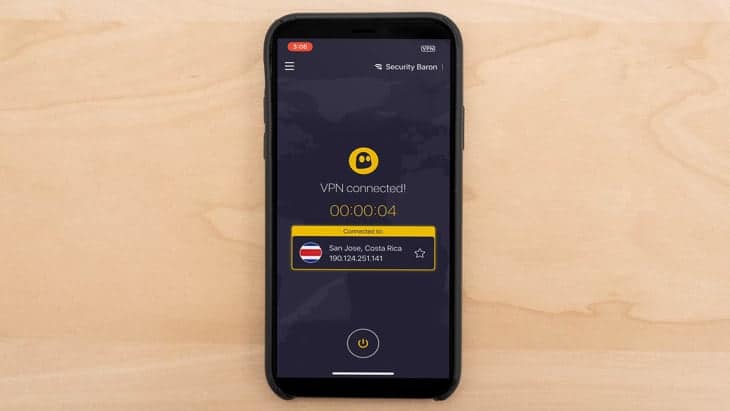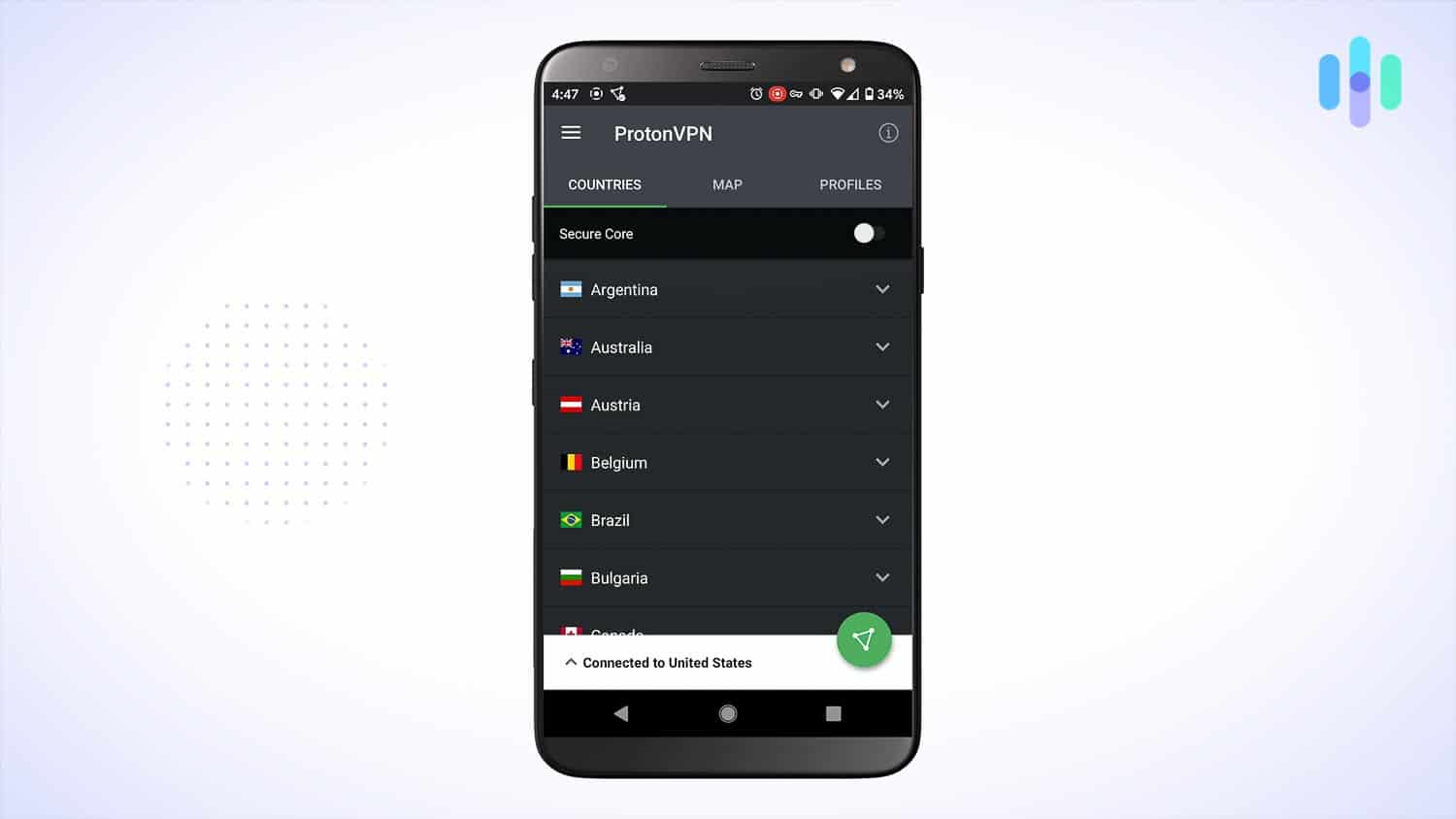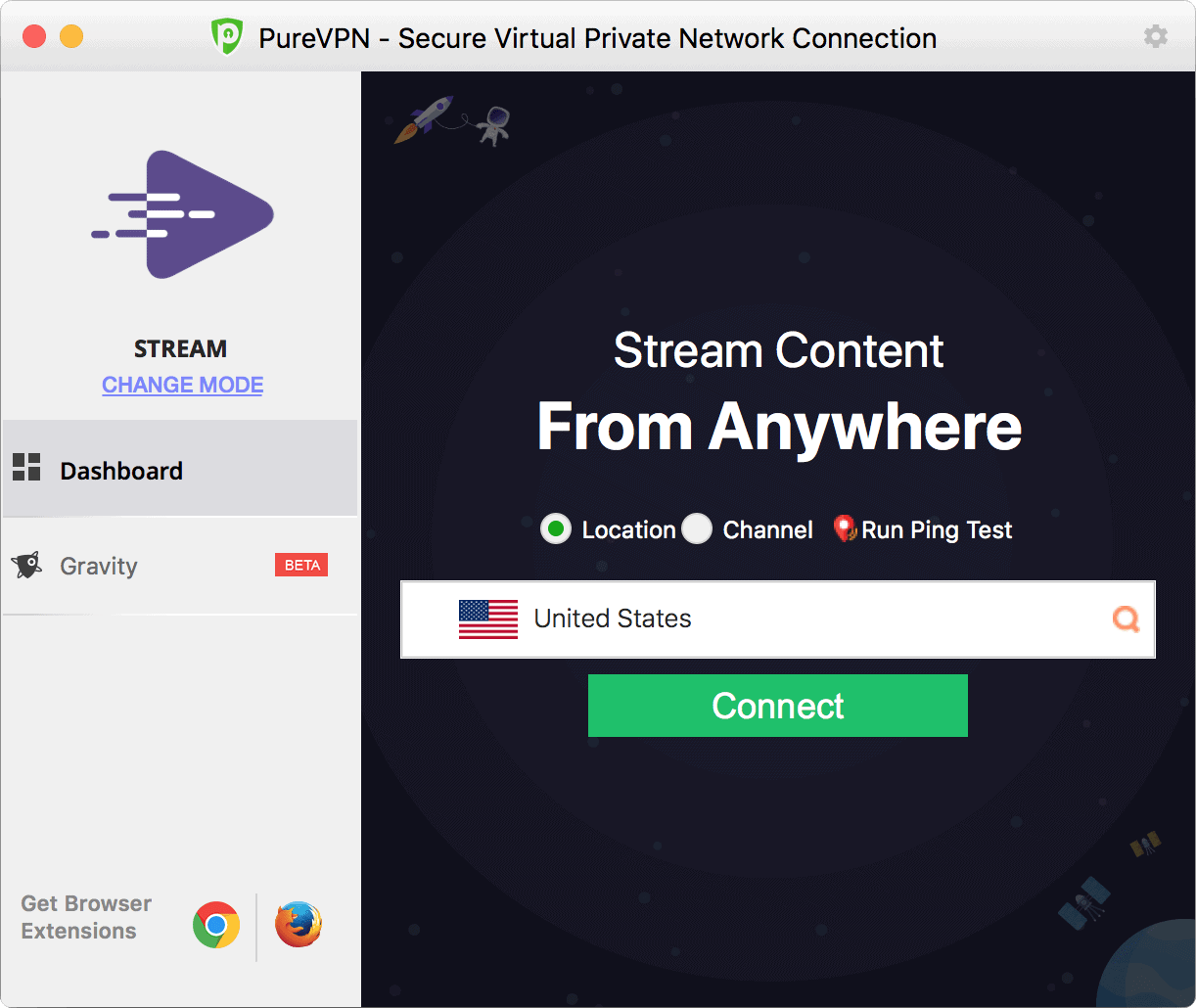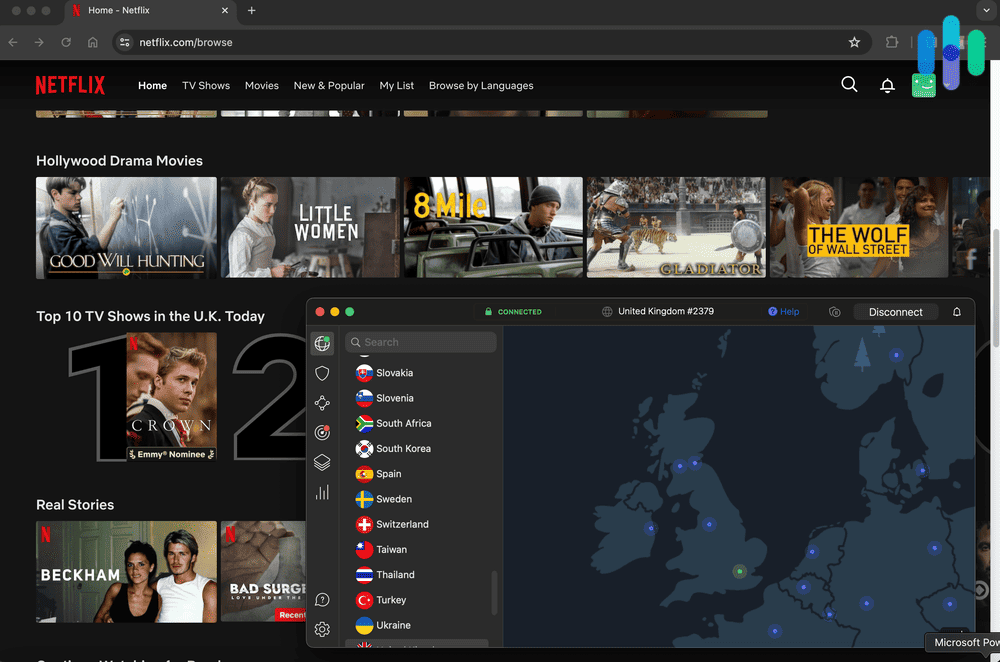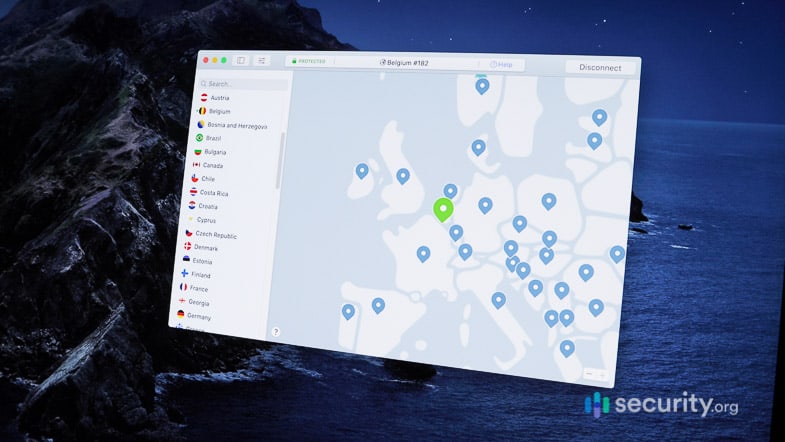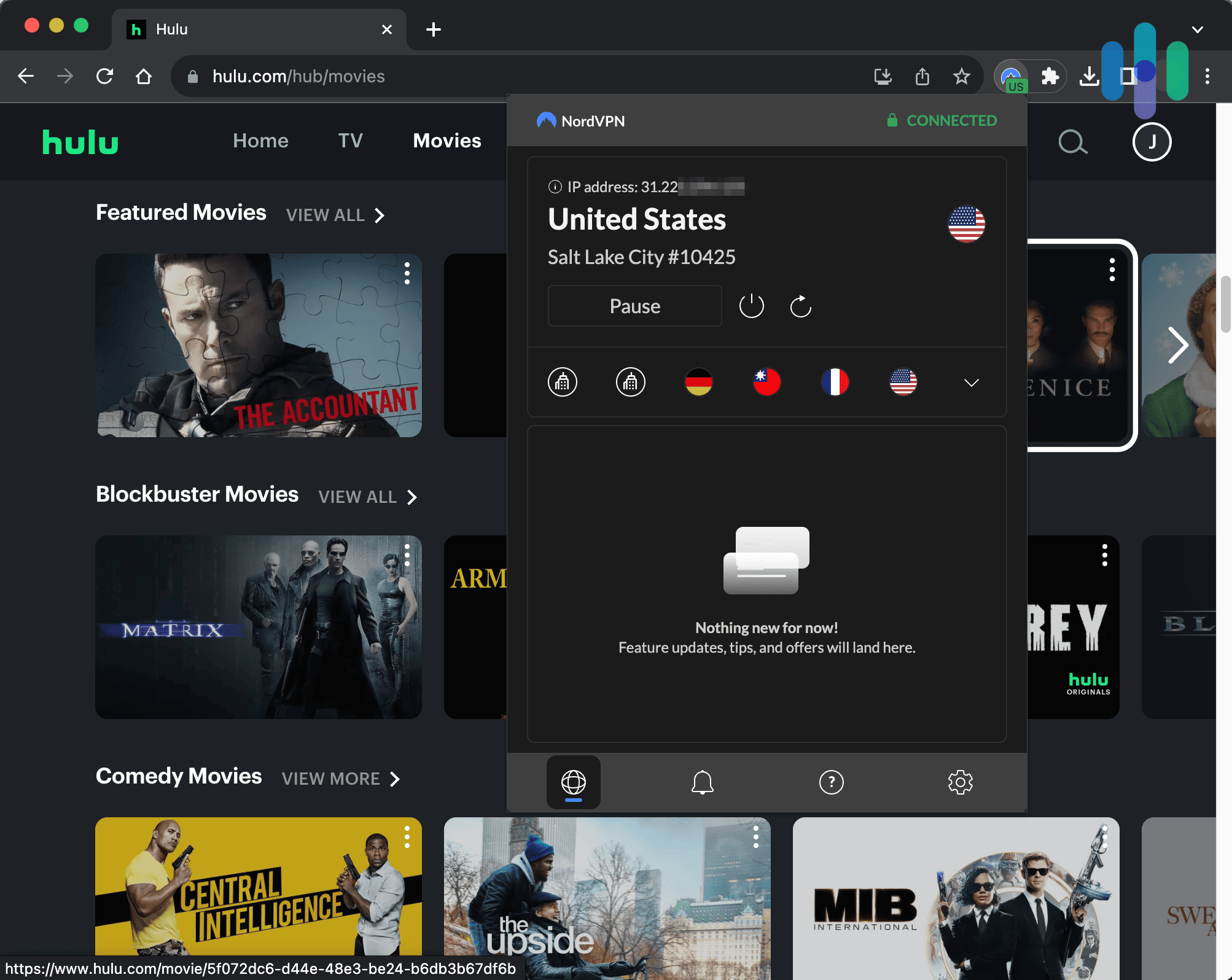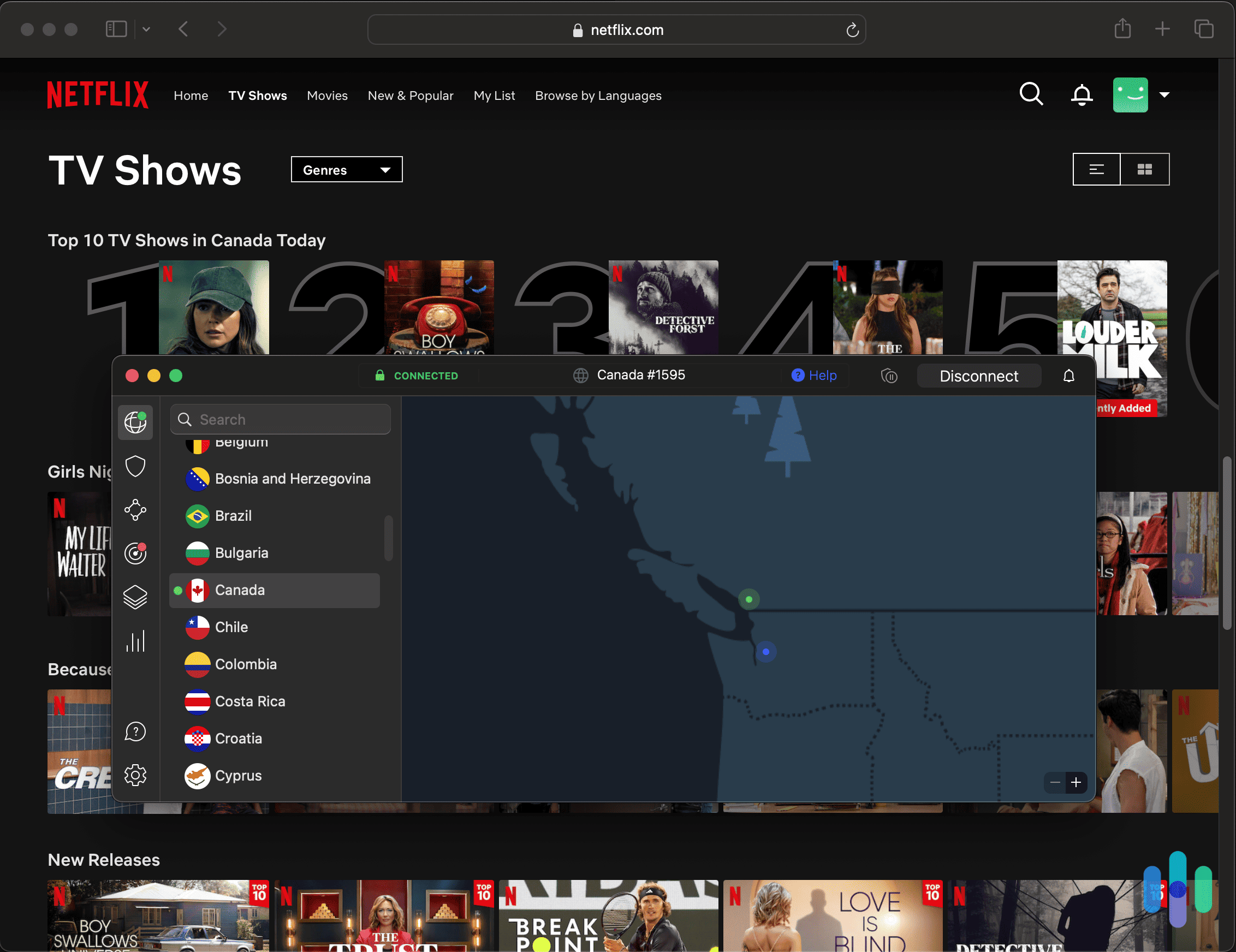The Best VPNs for Japan in 2025
Our top pick, NordVPN, provides access to over 130 Japanese servers and has a highly-rated mobile app for travelers.
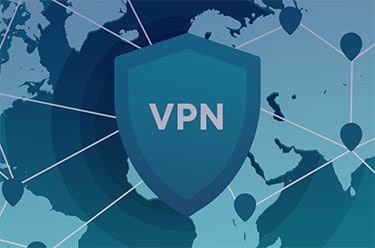

- Provides access to Japanese Netflix content
- Over 130 servers in Japan means there’s always one nearby
- Protects you when you’re using public Wi-Fi in Tokyo, Japan

- When you’re traveling in Japan, lets you log in to U.S. servers
- 62 servers in Japan, so there’s always one around when you need it
- Intuitive, easy-to-use app makes it easy to switch to a Tokyo server

- Lets you convince apps and sites that you’re in Japan even if you’re not
- Strict privacy policy means the Japanese government can’t see what you’re doing online
- Nearly 65,000 servers worldwide, including 180 in Japan
Japan is one of the coolest countries in the world. The food, the culture, the people — it’s a wonderful place to visit. When you’re traveling, however, your safety should be your highest priority.
Yes, that means thinking twice about eating fugu from that sketchy place by your hotel, but it also means you should consider your digital security. You never know who you’re going to be sharing Wi-Fi with in the cat cafe, and if you’re not doing something to cover your digital tracks, you could fall victim to hackers, scammers, and identity thieves.
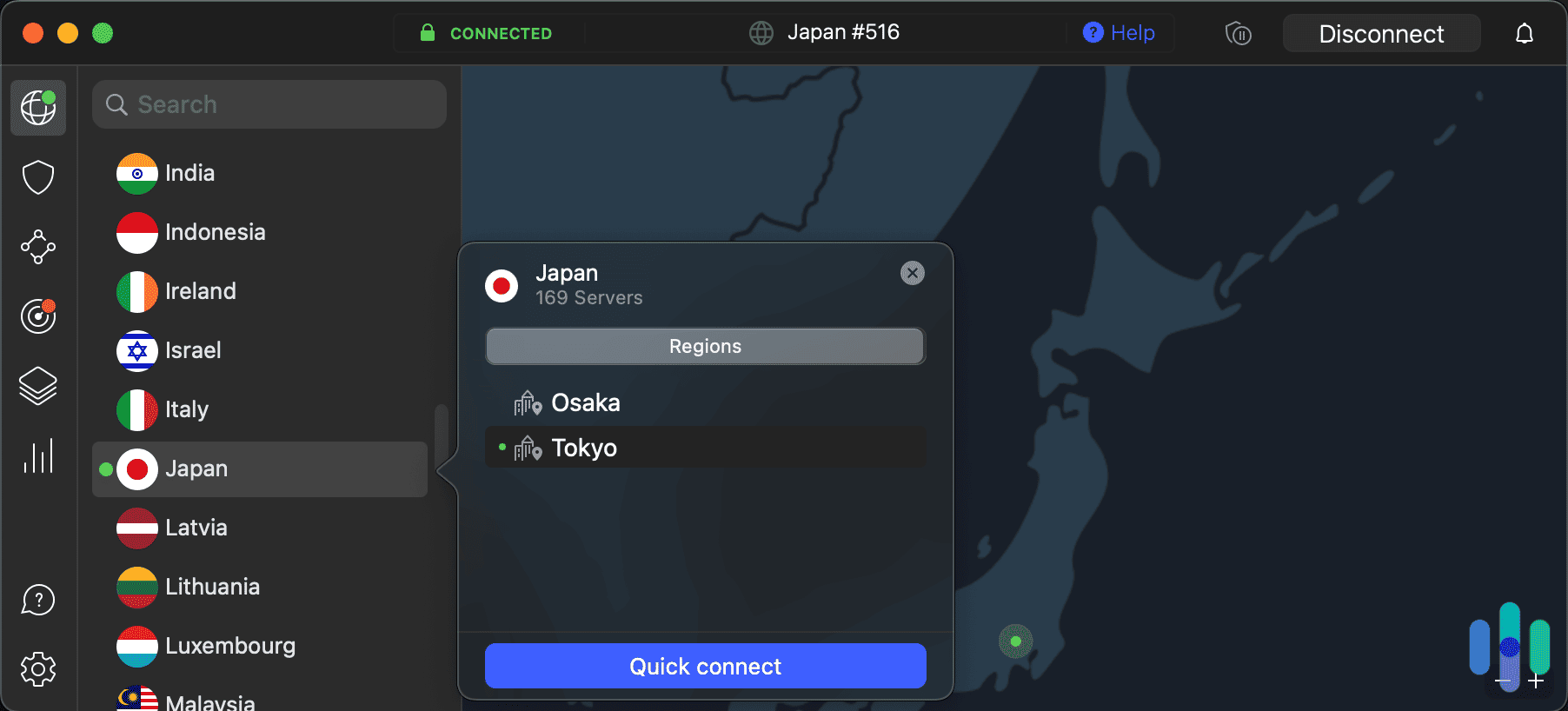
I’m not going to let your trip to Japan become a nightmare. I’ve traveled all over the world and spent countless hours testing VPNs, and I’m going to give you a list of the best possible VPNs for your visit to Nippon. Before we start the list, though, let’s look at some of the factors I use to find the best travel VPNs.
What to Look for in a VPN for Japan
| Japanese servers | Look for a VPN provider with a large server presence in the country you’re traveling to. One of the biggest factors in your VPN’s performance is your physical proximity to the connection point. |
|---|---|
| Speed | Not all VPNs are created equal. Look for one with a modern server network that uses fast VPN protocols like WireGuard. |
| Security | The reason you’re using a VPN is likely to increase your anonymity online. Make sure your VPN functions properly by using a reputable provider and test it for DNS and WebRTC leaks. |
| Price | Make sure you’re not paying too much for your VPN. The best providers should cost only between $3 and $15 per month, depending on the features you select and the duration of your subscription. |
Got all that? Perfect. Now that you understand what we’re looking for, let’s jump right into our detailed list.
Charting the Best VPNs for Japan
| System |
NordVPN

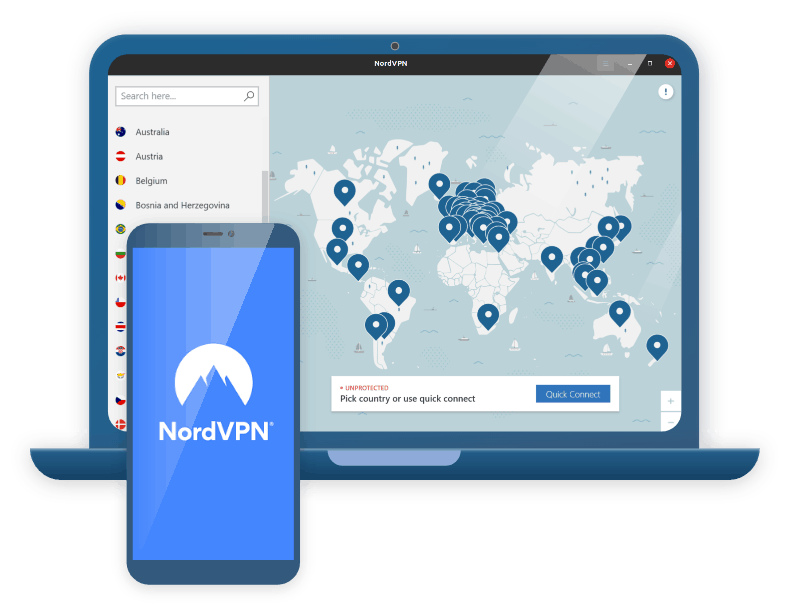
|
Surfshark


|
Private Internet Access

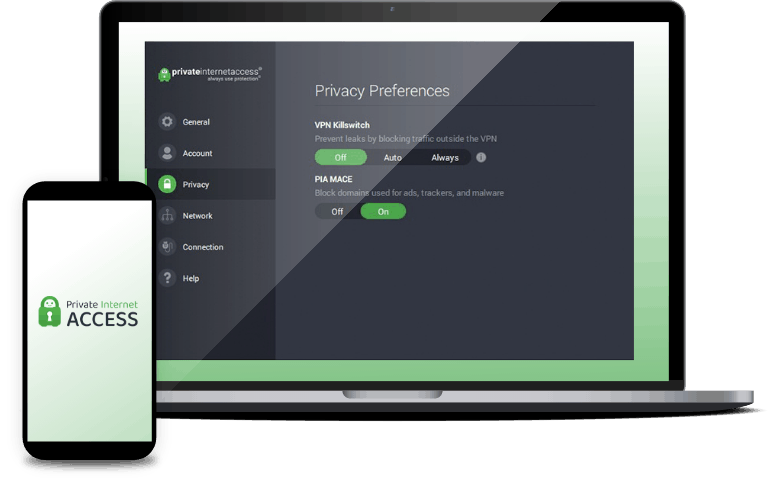
|
CyberGhost VPN

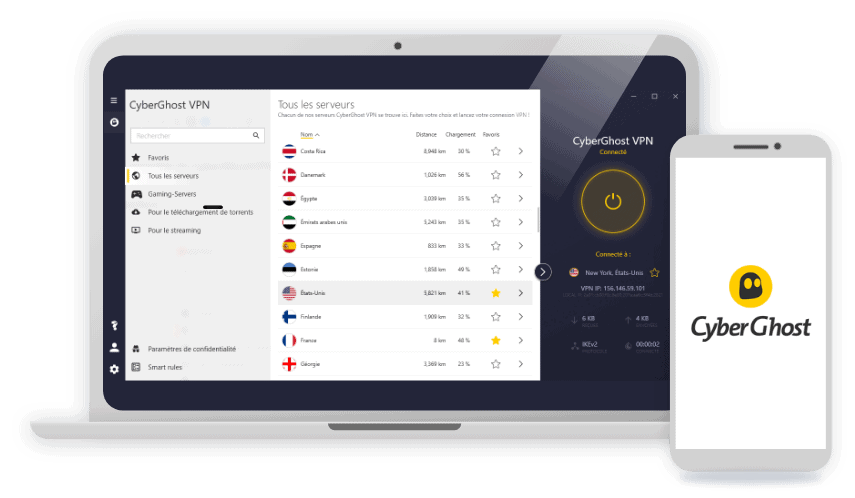
|
Proton VPN
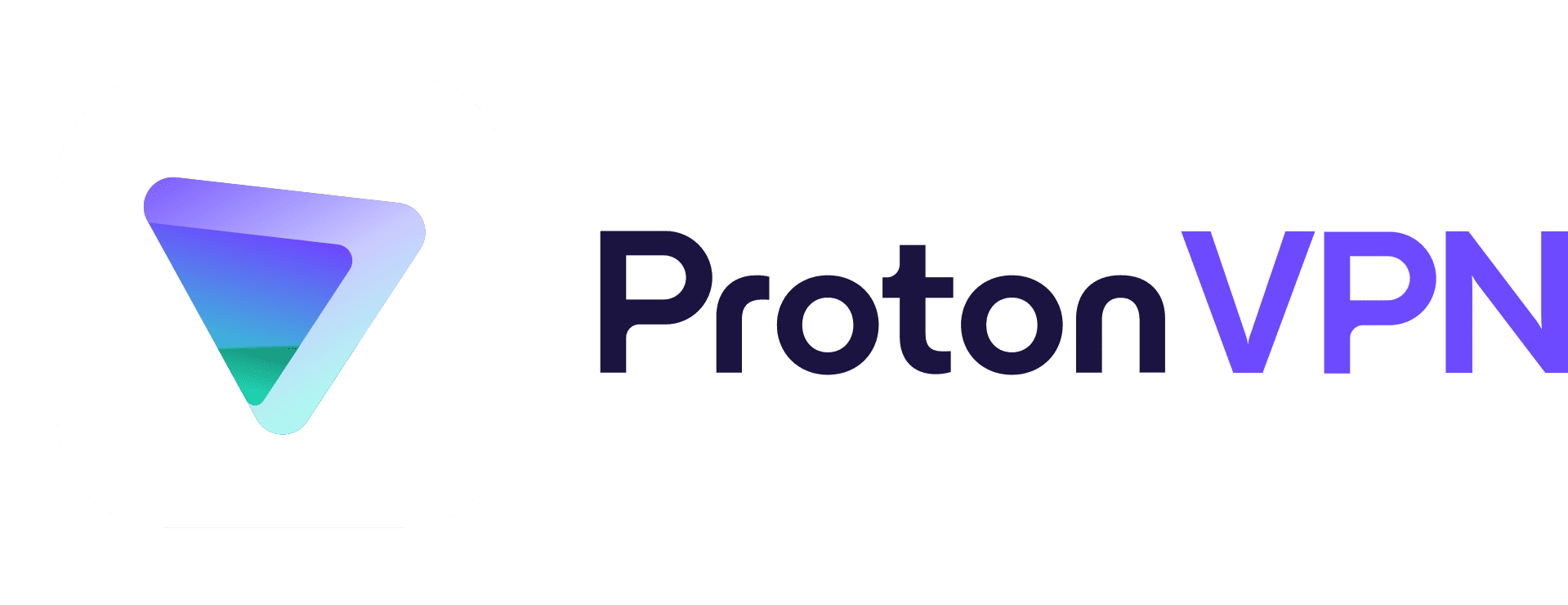
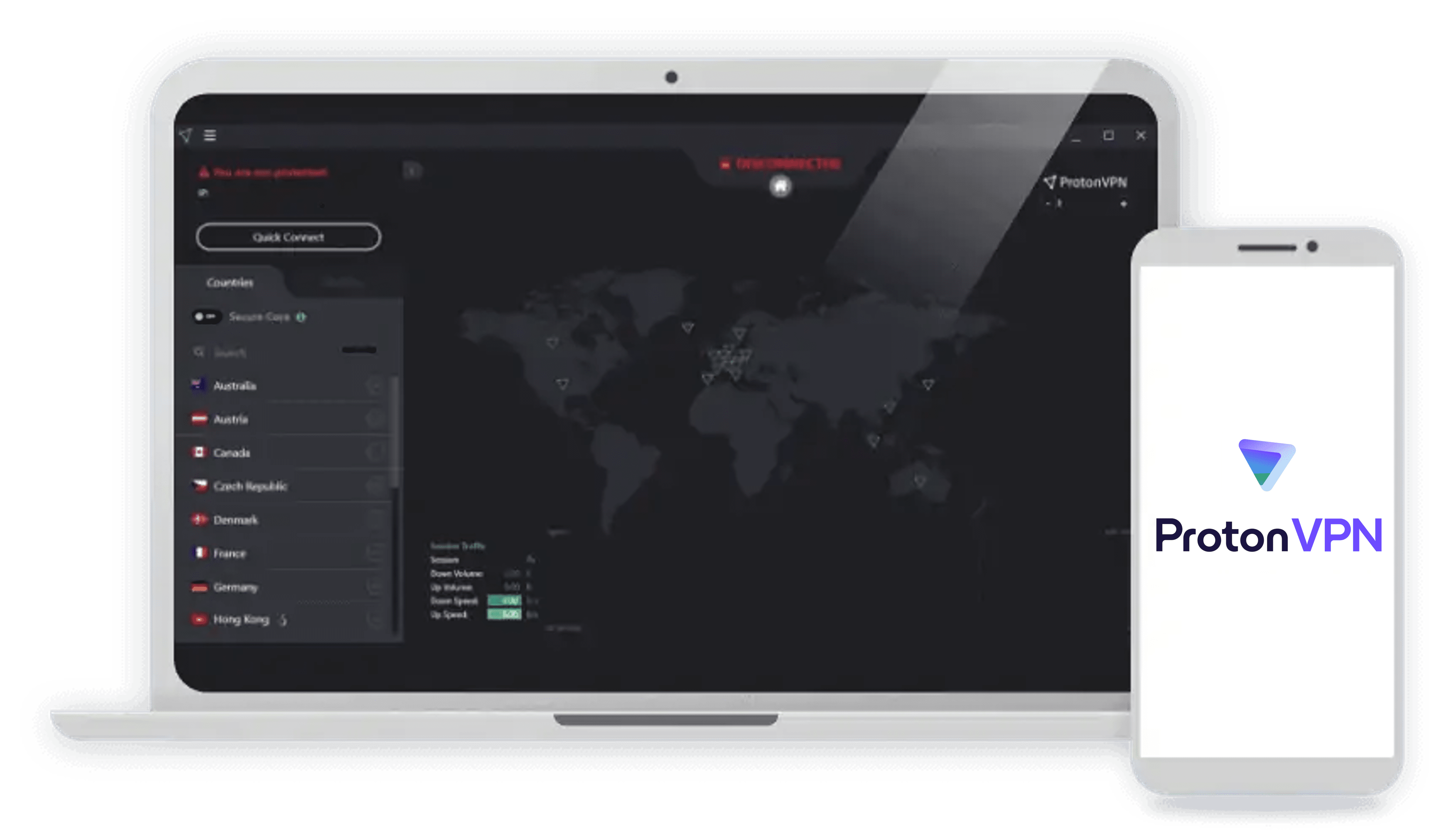
|
PureVPN

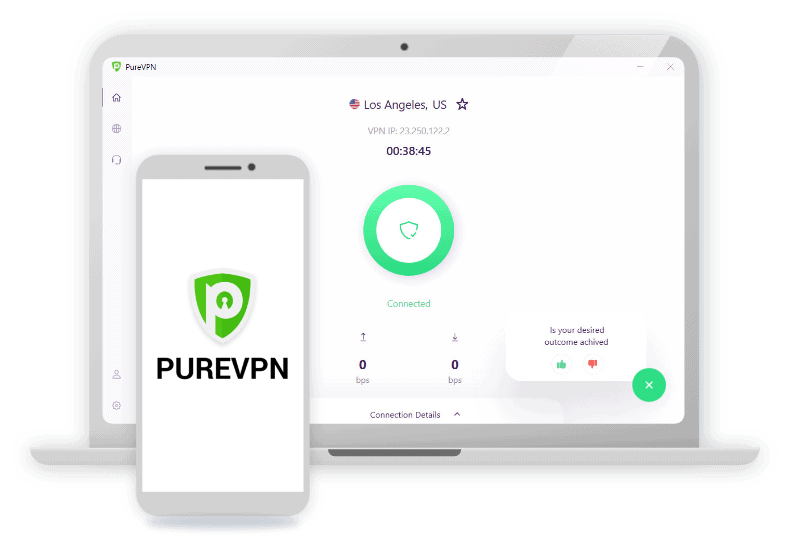
|
|---|---|---|---|---|---|---|
| Ranking | 1st | 2nd | 3rd | 4th | 5th | 6th |
| Ratings | 9.7/10 | 9.5/10 | 9.4/10 | 8.9/10 | 8.8/10 | 8.9/10 |
| Servers in Japan | 130+ | 62 | 180 | 232 | 51 | 110 |
| Minimum Monthly Cost | $3.39 | $2.49 | $2.19 | $2.19 | $0 | $1.96 |
| IP Addresses | Dynamic, shared, or dedicated | Dynamic, static | Dynamic | Static, Shared | Static, Shared | Static |
| Contract Length (in months) | 1 - 24 | 1-24 | 1 - 24 | 1 - 324 | 1 - 12 | 1 - 24 |
| Money-Back Guarantee (in days) | 30 | 30 | 1 | 45 | 30 | 31 |
| Torrenting Ability? | Yes | Yes | Yes | Yes | Yes | Yes |
| Netflix Access? | Yes | Yes | No | Yes | Yes | Yes |
| Five Eyes, Nine Eyes, and 14 Eyes Member? | No | Yes | Yes | No | No | No |
| Split Tunneling? | No | Yes | Yes | No | Yes | Yes |
| Kill Switch? | Yes | Yes | Yes “Disconnect Protection” | Yes | Yes | Yes |
| Read Review | NordVPN Review | Surfshark Review | Private Internet Access Review | CyberGhost VPN Review | Proton VPN Review | PureVPN Review |
Our Top Picks
- NordVPN - Best VPN for security in Japan
- Surfshark - Best mobile phone VPN for Japan
- Private Internet Access - Best VPN for servers in Japan
- CyberGhost VPN - Best VPN for students in Japan
- Proton VPN - Best VPN for streaming sports
- PureVPN - Best VPN for Netflix in Japan
Getting Granular: Best VPNs for Japan
-
1. NordVPN - Best VPN for Security in Japan
View Plans Links to NordVPNProduct Specs
Multihop Yes Obfuscated Servers Yes Kill Switch Yes Split Tunneling Yes Netflix Yes Torrenting Yes 
NordVPN consistently shows up high on our lists of the best VPNs, and there’s definitely a good reason for that. In my experience, it’s one of the best, most well-rounded VPNs on the market. It strikes a great balance between speed and security, and it has served me well on lots of vacations and business trips.
NordVPN Chrome app connected to Osaka, Japan while looking at Netflix What We Like
- More than 130 servers in Japan
- Access to Netflix on multiple servers
- Great mobile apps (perfect for travelers)
- Multiple device connections
What We Don’t Like
- MacOS app has some bugs
- Static IP Addresses
- No split tunneling
- Not the best customer support
Japanese Servers
Nord has over 6,000 servers worldwide, including 130 in Japan. That’s good news for travelers and expats who want to protect their connection in Japan without sacrificing performance. Nord also takes the guesswork out of server selection for you, since its smart algorithm will automatically select the fastest server based on your location and automatically connect. One of my less tech-savvy friends told me recently, “You know, NordVPN is so simple, I actually use it.” That’s a pretty strong sentiment when you think about it.
Security
Another selling point is that NordVPN uses RAM-only servers, which, coupled with its independently verified no-log policy, means it’s among the most private VPNs available. But, what makes NordVPN’s RAM-only servers one of the best no-log VPNs? Well, RAM requires power to store data, so every time a server is cycled down — which happens frequently — everything is wiped. Even if Nord wanted to share your data, there would be nothing to share — and that has been confirmed by Deloitte.
Speed
You’ve probably heard that VPNs slow down your connection speeds. That’s technically true, but it’s a bit of a blanket statement that may turn people off from their use. It’s more accurate to say advanced VPNs may slow down your performance slightly, but it’s rare that the slowdowns are noticeable. That’s the case with NordVPN. I was using it at a party just a few weeks ago to show my friends how to unlock Netflix libraries in other countries, and we were streaming from all over the world without so much as a buffering issue. Simply put, it’s one of the most consistently fast VPNs I’ve tested.
NordVPN iOS app connected to a Japan server To illustrate this point, here’s some data from my most recent speed test with NordVPN. Your results may vary, but this is pretty representative of my experience with the VPN overall.
NordVPN Speed Test
Testing computer MacBook Pro Acer Aspire 5 Ping without VPN (in ms) 42 5 Ping with VPN (in ms) 46 160 Ping difference 10% 3,100% MacBook download speed without VPN (in Mbps) 54.86 23.49 Download speed with VPN (in Mbps) 41.37 21.7 Download speed difference -24% -8% Upload speed without VPN (in Mbps) 33.86 24 Upload speed with VPN (in Mbps) 27.21 7.91 Upload speed difference -20% -67% Cost
I have a full breakdown of NordVPN’s subscription packages and prices, but the short version is this: NordVPN’s month-to-month costs are a little expensive, but the prices decrease dramatically when you sign up for a one- or two-year term. Good news, since I know flights to Japan are pretty expensive.
NordVPN Prices
NordVPN plan Monthly costs 1-year plan 2-year plan Standard $12.99 $4.59 per month $3.09 per month Plus $13.99 $5.49 per month $3.99 per month Ultimate $15.99 $7.49 per month $5.99 per month -
2. Surfshark - Best Mobile Phone VPN for Japan
View Plans Links to SurfsharkProduct Specs
Multi-hop Yes Camouflage Mode Yes Kill switch Yes Split Tunneling Yes Netflix Yes Torrenting Yes 
When you’re traveling, you have to protect more than just your laptop (or your desktop, if you’re like me and haul that thing around the world too). You need a VPN that will protect your phone, too, since it’s likely the device you’ll use the most while you’re checking out all the sites in Tokyo and beyond. And wouldn’t you know it, I have a VPN that performs exceptionally well on mobile.
Surfshark connected to Hong Kong What We Like
- Great mobile apps
- 62 servers with regular static IP addresses in Japan
- 30-day money-back guarantee
- Works on Android, iOS, Windows, Linux, macOS, and browsers
What We Don’t Like
- Only one server location in Japan
- Higher pricing for monthly plans
- Streaming can be hit or miss
- Takes time to connect sometimes
Japanese Servers
Surfshark is a great option for folks traveling to Japan, especially if you’re going to be on your phone a lot. More on that in a second, because first I want to talk about the company’s 62 Japanese servers. You can connect to both dynamic and static IP addresses in the country, and you’re never going to be far from a server site. That’s an important determining factor when I’m selecting which VPN to use in the country I’m traveling to. If it doesn’t have a large footprint there, I usually look for another provider.
FYI: There are two types of IP addresses offered by a VPN. A static IP address is one that only you will have access to, while a dynamic one changes and can be shared with other users. There are uses for both, but dynamic addresses are far more common.
Security
Surfshark offers a lot of great security features, such as military-grade encryption, RAM-only servers, a kill switch that will work on your Android or iPhone, and server obfuscation, which prevents ISPs and intrusive governments from recognizing you’re using a VPN. What’s a kill switch, you ask? Good question. It’s a function that will kill your internet connection if the VPN service is interrupted.
>> Check Out: VPN Encryption Guide
It has saved me more than once while traveling. Most recently, I was in a cafe in Vietnam checking my bank account on my phone when my internet died. I didn’t immediately realize what was going on, but Surfshark’s kill switch had flipped, likely due to an unstable internet connection. I can’t say for sure that I would have fallen victim to some cybercrime if the kill switch hadn’t gone off, but I’m glad I didn’t have to find out the hard way!
Speed
In my experience, Surfshark’s speeds are plenty fast for bandwidth-sucking activities, so they’re more than capable of getting you through your day-to-day without annoying slowdowns. Speaking of those activities, I have lists of the best VPNs for streaming and the best VPNs for torrenting. In my experience, Surfshark consistently performs a little better on Mac than it does on PC, but the differences aren’t extreme.
>> Learn More: Best VPNs for Mac
Speed tests aren’t universal; they give you a moment-in-time picture of how a VPN is performing. One of the most recent tests I performed with Surfshark, however, was pretty representative of its performance overall.
Devices tested on MacBook Pro 2011 Acer Aspire 5 (Windows 10) Ping without VPN 54 ms 7 ms Ping with VPN 53 ms 199 ms Ping difference 2% 2,742% MacBook download speed without VPN 16.21 Mbps 23.69 Mbps Download speed with VPN 11.87 Mbps 19.61 Mbps Download speed difference 31% 17% Upload speed without VPN 22.01 Mbps 24.09 Mbps Upload speed with VPN 24 Mbps 10.58 Mbps Upload speed difference 9% 56% Cost
Surfshark’s costs are right on par with NordVPN, and its month-to-month packages are similarly a little pricey at $15.45. You’ll save significantly if you sign up for a one-year or two-year term. There are some more affordable VPNs on our list, though, so keep reading if these prices are making you think twice. The next VPN is way cheaper.
Surfshark Prices
Plan Month-to-month 1-year 2-year Surfshark Starter $15.45 $3.49 per month $2.49 per month Surfshark One $15.95 $4.09 per month $3.19 per month Surfshark One+ $17.95 $6.49 per month $4.97 per month -
3. Private Internet Access - Best VPN for Servers in Japan
View Plans Links to Private Internet AccessProduct Specs
Multihop Yes Obfuscated Servers Yes Kill Switch Yes Split Tunneling Yes Netflix Yes Torrenting Yes 
I’m going to tell you a secret: Most high-end, modern VPNs will offer many of the same basic services. That means the providers are constantly looking for ways to differentiate themselves from the competition. Private Internet Access (PIA) does that by offering a massive number of servers, as well as a high level of customizability in its app. If you want knobs to turn and levers to pull to get the most out of your VPN experience, PIA may be the right service for you.
Private Internet Access connected through New York. What We Like
- Stellar mobile app reviews
- Kill switch
- Ability to stream without worry
- Fast on Windows
What We Don’t Like
- Subject to Five Eyes, Nine Eyes, and 14 Eyes
- No capability for split tunneling
- No free trial
- Poor customer service
Japanese Servers
It’s a little tough to find information on server breakdowns by country with PIA, but it had nearly 200 servers in Japan the last time we were able to get an accurate count. Whether you’re in Kyushu in the south or Hokkaido in the north, you should be covered. Worldwide, PIA has a whopping 65,000 servers, which is orders of magnitude more than the other VPN providers on this list. That means PIA is one of the best VPNs for travelers, whether you’re going to Japan, Spain, the Netherlands, or anywhere else your passport may take you. (See our guide to the best VPNs for the Netherlands if you’ll be in that neck of the woods.)
>> Learn More: Our Favorite VPNs for Spain
Security
PIA is another provider that offers a RAM-only server fleet coupled with a strict third-party-audited no-log policy. That’s the gold standard when it comes to protecting your privacy online, and it’s what really makes my VPN-dork heart sing. PIA also does split tunneling really well, which allows you to route certain traffic through the VPN while leaving other connections traditional. I’ve used PIA’s split-tunneling feature to watch Hulu libraries from other countries while keeping up with my work email — sometimes certain clients and apps don’t play well with VPNs — so this is definitely a useful feature.
Speed
Here’s another secret: I’m not going to include any VPN on this list that will slow you down to the point you want to tear out your hair. PIA performs really well day to day, which isn’t a huge surprise with the size of its server network. In my most recent tests, I found that speeds were more affected on my MacBook Air than they were on my Vivobook running Windows 10, but again, speeds are determined by a large number of factors.
To drill down a bit further, below are the results of my most recent PIA speed test. The long and short of it is that PIA performs well under a variety of circumstances.
Download Speeds on Mac
With VPN 12.93 Mbps Without VPN 37.05 Mbps Download Speeds on Windows
With VPN 61.67 Mbps Without VPN 72.48 Mbps Upload Speeds on Mac
With VPN 18.12 Mbps Without VPN 25.9 Mbps Upload Speeds on Windows
With VPN 39.13 Mbps Without VPN 41.37 Mbps >> Learn About: Best VPNs for Windows
Cost
PIA is one of the more inexpensive options on this list. Two interesting things about PIA’s costs, though, are that you get an unlimited number of connections with your subscription — other providers, such as CyberGhost, limit it to five or 10 — and you can pay for your subscription with gift cards. If your weird uncle got you a Best Buy gift card for your birthday this year, you can use it to protect yourself online while you’re traveling in Japan. What a time to be alive.
Here’s what PIA’s prices look like.
Private Internet Access Pricing Breakdown
PIA subscription term 1 month 1 year 3 years Monthly cost $11.95 per month $3.33 per month $1.98 per month Total cost $11.95 $39.95 $79 -
4. CyberGhost VPN - Best VPN for Students in Japan
View Plans Links to CyberGhost VPNProduct Specs
Multihop Yes Obfuscated Servers No Kill Switch Yes Split Tunneling Yes Netflix Yes Torrenting Yes Studying abroad in Japan next semester? CyberGhost may be the right VPN for you, especially if you were a broke college student like I was (we’ve all been there). It offers a whopping 79 percent off for students on top of its already low prices. That means more ramen for you!
It’s also one of the best VPNs for streaming ESPN+, Hulu, Disney+, or whatever other platform you prefer. Thanks to CyberGhost’s sophisticated server network, your traffic will make it past most blockers. Just don’t get distracted from your studies.
CyberGhost App What We Like
- Lightning speeds on Mac
- Exceptional customer service
- Best-in-class student discount
- No VPN activity tracking
What We Don’t Like
- Static IP Addresses
- Slower speeds on Windows
- Shaky logging policy
Japanese Servers
Out of all the VPNs on our list, CyberGhost has the fewest server locations in Japan, with just one. Keep in mind, though, that’s just the location. The company runs 232 Japanese servers in total – more than any other VPN on this list. Could the geographical concentration in Tokyo be a problem? Maybe, if you’re spending your whole vacation on the Northern tip of Hokkaido. But we think Tokyo is central enough that most people won’t notice any lag.
Security
CyberGhost is yet another VPN provider with a great no-log policy and a RAM-only server fleet running 256-bit AES encryption. It doesn’t get much better than that if you’re looking for anonymity. That means it’s highly unlikely that CyberGhost will ever suffer a data breach, and it would be difficult for hackers to gather any useful data from the provider even if they spent the time and effort it would take to get into CyberGhost’s system. And that means cybercriminals are highly unlikely to bother trying.
Speed
If you haven’t gathered by now, I’m a big fan of streaming using a VPN. It’s a fun way to see what’s going on in other parts of the world, or, on the flip side, watch something familiar when you’re traveling abroad. On a recent two-week business trip to Singapore, I used CyberGhost to access my Netflix from back in the States so I could watch “Seinfeld” on a particularly lonely night. (It’s nice to have a little bit of familiarity sometimes.) In order to do that, you’ll need a fast VPN that won’t slow down your connection speeds. CyberGhost is a great example.
As far as the data goes, here is the result of my most recent CyberGhost speed test. Keep in mind, though, that I’m not saying this will be your experience. It’s just a good approximation of what you can expect.
CyberGhost Speed Test
Download Speeds on Mac
With VPN 37.05 Mbps Without VPN 35.97 Mbps Download Speeds on Windows
With VPN 69.86 Mbps Without VPN 55.4 Mbps Upload Speeds on Mac
With VPN 25.9 Mbps Without VPN 23.93 Mbps Upload Speeds on Windows
With VPN 41.21 Mbps Without VPN 21.93 Mbps >> Learn More: The Best VPNs for Singapore
Cost
CyberGhost’s prices are more aligned with PIA than with Surfshark or NordVPN, both of which are a little more expensive month to month and when you sign up for a longer subscription. CyberGhost’s month-to-month plans cost $12.99, which works out to $2.11 per month when you sign up for two years. It does, however, offer that killer 79 percent student discount.
CyberGhost’s Costs
Subscription term Month-to-month 6 months 2 years Cost $12.99 $6.99 $2.11 -
5. Proton VPN - Best VPN for Streaming Sports in Japan
View Plans Links to Proton VPNProduct Specs
Multi-hop Yes Camouflage Mode Yes Kill switch Yes Split Tunneling Yes Netflix Yes Torrenting Yes I get that you may be a little hesitant to start using a VPN every day, especially while you’re traveling to Japan. What if it’s a hassle to use? What if it slows down your connection speeds too much? You may be interested in checking out Proton VPN. It’s one of the few providers that offers an honest free version of its product so you can try it out, or, if the free version works for your purposes, you can just use it indefinitely.
>> Check Out: Top Free VPNs
Proton VPN app What We Like
- No data logging
- Great streaming speeds
- No IP blacklisting from streaming services
- Kill switch and split tunneling
What We Don’t Like
- Mixed customer-support reviews
- High price point
- Subject to Five Eyes’ jurisdiction
- Free plan speeds are very slow
Japanese Servers
ProtonVPN has 51 servers in Japan, and over 4,000 worldwide. It’s not a huge fleet, but it’s definitely respectable. I’ve tested these servers from the States, and they’ll definitely allow you to access specific Japanese content and unlock streaming libraries as if you were in the country. If you’ve read my other reviews, you know I like Japanese game shows and I’ve used Proton to access them without fail. All aces there.
>> Further Reading: Best VPNs for Netflix
Security
Unfortunately, ProtonVPN is the first on our list that uses traditional servers rather than RAM-only arrays. It’s not the worst thing in the world though. Until a few years ago, that’s how all VPNs worked. What Proton does have, though, is an air-tight no-log policy that has been confirmed by Securitum, a leading European security-auditing company that conducts over 300 security testing projects every year for major corporations and banks. It uncovered no significant security issues when it took a look at Proton.
Proton also has the distinction of being the VPN trusted by journalists across the world who need to protect the identities of sources sharing sensitive information. Its sister product, Proton Mail, encrypts communications and anonymized information, helping protect whistleblowers revealing crucial information the world needs to know — particularly in restrictive regimes. I can certainly forgive Proton for using traditional technologies.
>> Learn More: Best VPNs for China
Speed
I tested Proton VPN on a MacBook Pro running macOS Mojave and a ThinkPad T430 running Windows 10, and I used the Quick Connect option in the app to connect to the optimal servers in Brooklyn, where I live. It performed significantly better on the Windows computer, but take that with a grain of salt. My download speeds remained above 60 Mbps every time I tested it, so the slowdowns weren’t all that noticeable. Here’s a quick breakdown of my latest Proton test:
Download Speeds on Mac
With VPN 463.85 Mbps Without VPN 61.47 Mbps Download Speeds on Windows
With VPN 157.52 Mbps Without VPN 91.47 Mbps Upload Speeds on Mac
With VPN 28.66 Mbps Without VPN 25.6 Mbps Upload Speeds on Windows
With VPN 28.95 Mbps Without VPN 27.88 Mbps Cost
ProtonVPN’s costs are right in the middle of the road. It’s not as expensive as NordVPN month to month, but a one- or two-year subscription is about a dollar more. For just VPN service, NordVPN costs $12.99 month to month, $4.59 per month if you pay for a year upfront, and $3.09 per month if you pay for two years upfront.
ProtonVPN’s Costs
Subscription term 1 month 1 year 2 years Monthly cost $9.99 $5.99 $4.99 Where ProtonVPN really stands out, though, is its free version. It’s available indefinitely, which means the trial will never expire. Keep in mind, though, that you’ll be using a stripped-down version of the product. You’ll have access to only three server locations — hey, at least one of them is in Japan — and you’ll be able to use only one device per account. No bandwidth caps, though, so that’s good news if you want a free VPN for torrenting.
>> Read About: Top-Rated VPNs With Free Trials
-
6. PureVPN - Best VPN for Netflix in Japan
View Plans Links to PureVPNProduct Specs
Multi-hop No Camouflage Mode Yes Kill switch Yes Split Tunneling Yes Netflix Yes Torrenting Yes Just like with the other VPN providers, one of the coolest things you can do with PureVPN is use it to watch Netflix in other countries. Netflix frowns on the practice, but so far it has never taken action against users for doing it — it has just upgraded its software to detect and block traditional VPN traffic. You’ll just need a modern provider like PureVPN to bypass the filters while you’re in Japan.
Beyond helping users stream, PureVPN offers great performance regardless of the computer you’re using — although I’ve found it tends to work a little better on Mac devices — and since it’s headquartered in Hong Kong, you won’t run into any international data-sharing agreements. There is something I need to discuss about its no-log policy, though, which I’ll get to in a second.
PureVPN’s app for Mac. Screenshot from PureVPN’s website. What We Like
- Fast on Mac
- Limitless Netflix connectivity
- Independent security valuation
- Headquartered in Hong Kong
What We Don’t Like
- High ping on Windows (bad for gamers)
- Static IP addresses
- Mediocre app reviews
- Sub-par customer service
Japanese Servers
PureVPN is another provider with a pretty massive server fleet — around 6,000 in total, 110 of which are located in Tokyo. To put that in context, NordVPN’s numbers are almost identical — about 6,000 servers with 130 locations in Japan. PIA, on the other hand, has 65,000 servers with 180 in Japan.
A large number of servers definitely plays a role in the overall performance of a VPN, and PureVPN definitely gets it right. I use the service to stream content pretty regularly — most recently on a trip across Europe with my wife. In our hotel room, we were able to keep up with her reality TV — much to her pleasure (and my chagrin).
Here’s a quick look at the data on my most recent PureVPN speed test. Keep in mind, your results may be a little different.
PureVPN Speed Test
Download Speeds on Mac
With VPN 418.89 Mbps Without VPN 310.88 Mbps Download Speeds on Windows
With VPN 107.44 Mbps Without VPN 60.27 Mbps Upload Speeds on Mac
With VPN 28.6 Mbps Without VPN 15 Mbps Upload Speeds on Windows
With VPN 28.89 Mbps Without VPN 25.70 Mbps Security
PureVPN is a secure service that uses traditional servers and relies on the strength of its independent audit to verify that it isn’t keeping any information it shouldn’t be. There is one caveat to that: In 2017, it provided limited information to the FBI that helped convict a Massachusetts man of cyberstalking. That may give you pause, or you may think you have nothing to worry about if you’re not using the VPN to do illegal stuff. I can definitely see both sides of the argument, and I’ll leave it up to you to decide.
FYI: In my opinion, PureVPN didn’t do anything wrong here. It’s clear about the limited amount of information it collects, and it only shared the information with the FBI in an effort to help prosecute someone who needed prosecution. I’d be singing a different tune if it was secretly keeping track of users’ browser histories and gave it to the Feds just because. In this case, however, the company was able to confirm that the suspect was using its product at a certain time, which is perfectly reasonable for any VPN provider if you read the fine print.
Speed
As you’d expect with such a large server base, PureVPN’s speeds are consistently fast. In my most recent test, PureVPN was working a little better on my MacBook Pro than on my ThinkPad, but only minimally. My download speeds were still in the triple digits, and my uploads were in the doubles. Latency increased noticeably on the ThinkPad, so you may want to think twice about PureVPN if you’re going to use your VPN for gaming.
Cost
Similar to NordVPN, Surfshark, and others on this list, PureVPN offers different tiers of service — which I unpack fully in my guide to PureVPN’s subscription packages — and, like those providers, the month-to-month costs are a little eye-watering. If you sign up for a longer-term subscription, though, it gets a lot more reasonable.
PureVPN’s prices
Plan 1 month 1 year 2 years Standard $10.95 $3.74 $1.96 Plus $16.95 $5.82 $3.21 Max $20.95 $6.24 $3.85
Do I Need a VPN in Japan?
Japan is known for a lot of things — the culture, the art, the food — and for the most part, Japanese people and visitors to the country have relatively free access to the internet. That said, internet culture in Japan is a lot different than it is in the U.S. Local intelligence agencies have nearly free reign to monitor online activities, and surveillance operations are extreme. For instance, you can be slapped with serious fines or even imprisonment for making online insults.
The Japanese government’s NOTICE program is also a cause for concern for privacy hawks. It permits authorities to access millions of internet-enabled devices with very little oversight. Troubling news if you’re an advocate of a free and open internet.
The best way to protect yourself from online snoops, spooks, thieves, and fraudsters while traveling to or living in Japan is to use a VPN. I wouldn’t go so far as to say you need a VPN in Japan like I would if you were visiting, say, China, but it’s certainly a good idea. You don’t need to lock your doors at night, either, you know?
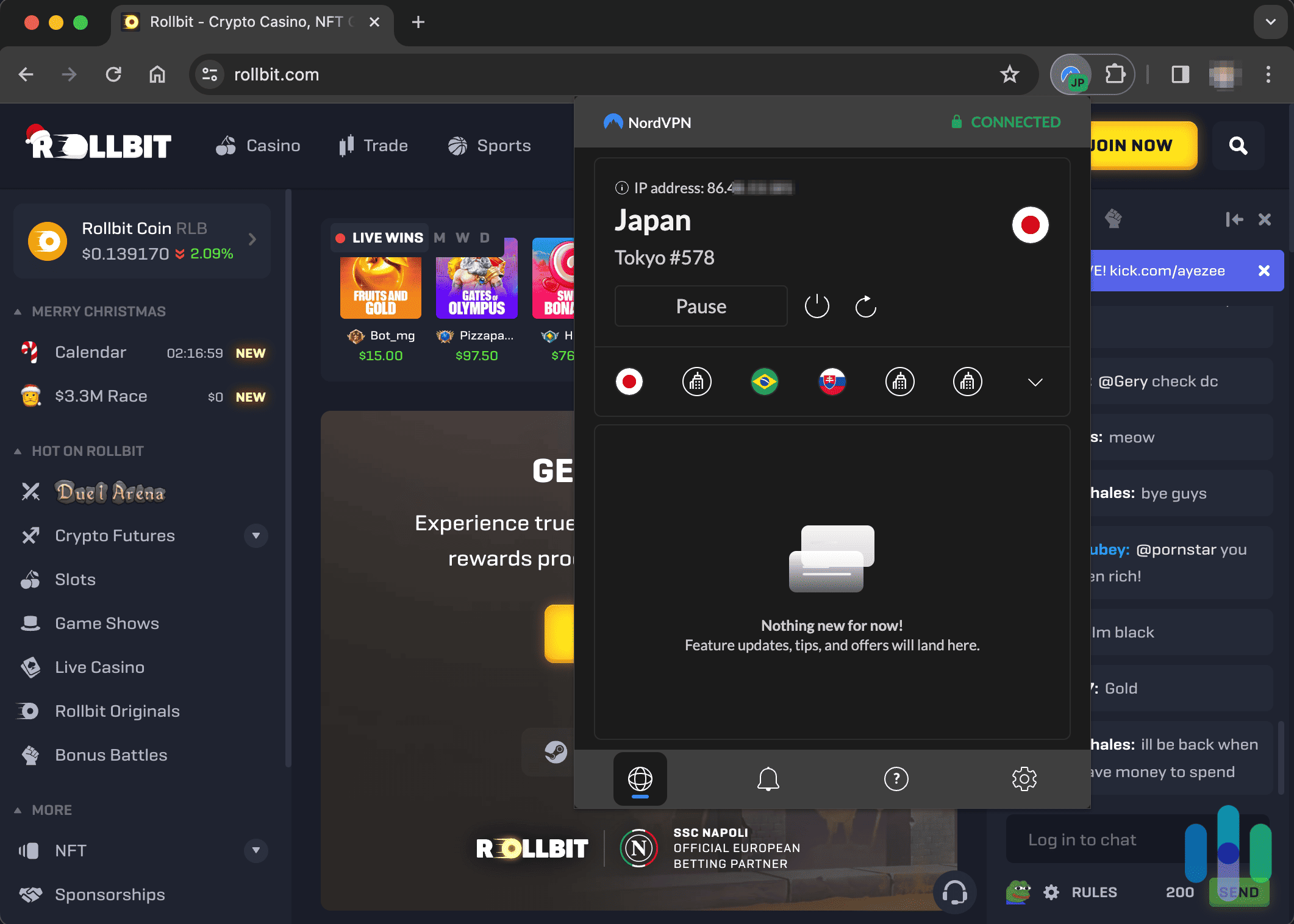
Learn More >> Best VPNs for Hong Kong
Are VPNs Legal in Japan?
Yes, using a VPN is perfectly legal in Japan, but you need to understand that a VPN is not a magic get-out-of-jail-free card. If you use a VPN to access the dark web and buy illicit materials, for example, you can and will be prosecuted by Japanese authorities if you’re found out.
I liken legal VPN use to driving a car. It helps you travel unfettered, and you’re free to go wherever you please. But if you run red lights or smash your car into your neighbor’s house to spite him, you’re going to get into trouble.
What to Avoid in a VPN for Japan
We’ve gone over what you should look for in a VPN for Japan, but I want to touch on some things you should avoid, because there are a few providers that aren’t exactly reputable.
First, look out for services that claim to be free. There is no such thing as a completely free VPN. Some providers, such as TunnelBear and Proton, offer free versions of their services and there are a handful that offer free trials, but there are serious limitations to these “free” products. Remember the adage: If the product is free, then you’re the product!
You also don’t want to pick a VPN that doesn’t have a well-defined track record. That isn’t to say new products aren’t worth checking out, but I’d much rather go with a service that’s tried and true instead of an untested upstart — regardless of the price. Make sure you check out online reviews like this one, read forums, and google to make sure the provider you’re thinking about has a history of third-party audits to confirm it’s offering the security it claims.
Methodology
Every VPN on this list is rigorously tested by our team for its functionality, speed, and security. Further down, you can get into our battle-tested methodology so you can replicate the tests at home or simply understand what goes into a VPN test. It will help you determine exactly why these VPNs are ranked where they are. It’s also important to note that we took into account how many VPN servers are located in Japan for this list, which was a key factor in our rankings.
After we determined that each VPN had a sizable number of servers and capabilities in Japan, we dove into their features. Our initial concentration is on privacy and security, the linchpins of any good VPN. We specifically considered how well the VPN masks our IP address, if the VPN logs any personally identifying information, and if it meets our level of encryption standards to keep our data safe (256-bit AES is the ideal). If we feel each VPN has these features, we jump into the tests.
Speed
A VPN can be as secure as the nuclear codes, but if it doesn’t get you online quickly, what’s the point? First, we test the speed of each VPN. All the VPNs listed are tested on our private Optimum network at our office in Brooklyn. We establish a control by connecting only one device at a time and measuring our internet speeds without any VPN live. We then test our VPNs on two different computers with two separate operating systems. For the tests referenced above, we used a MacBook Air and a Windows Vivobook on the website SpeedTest.net.
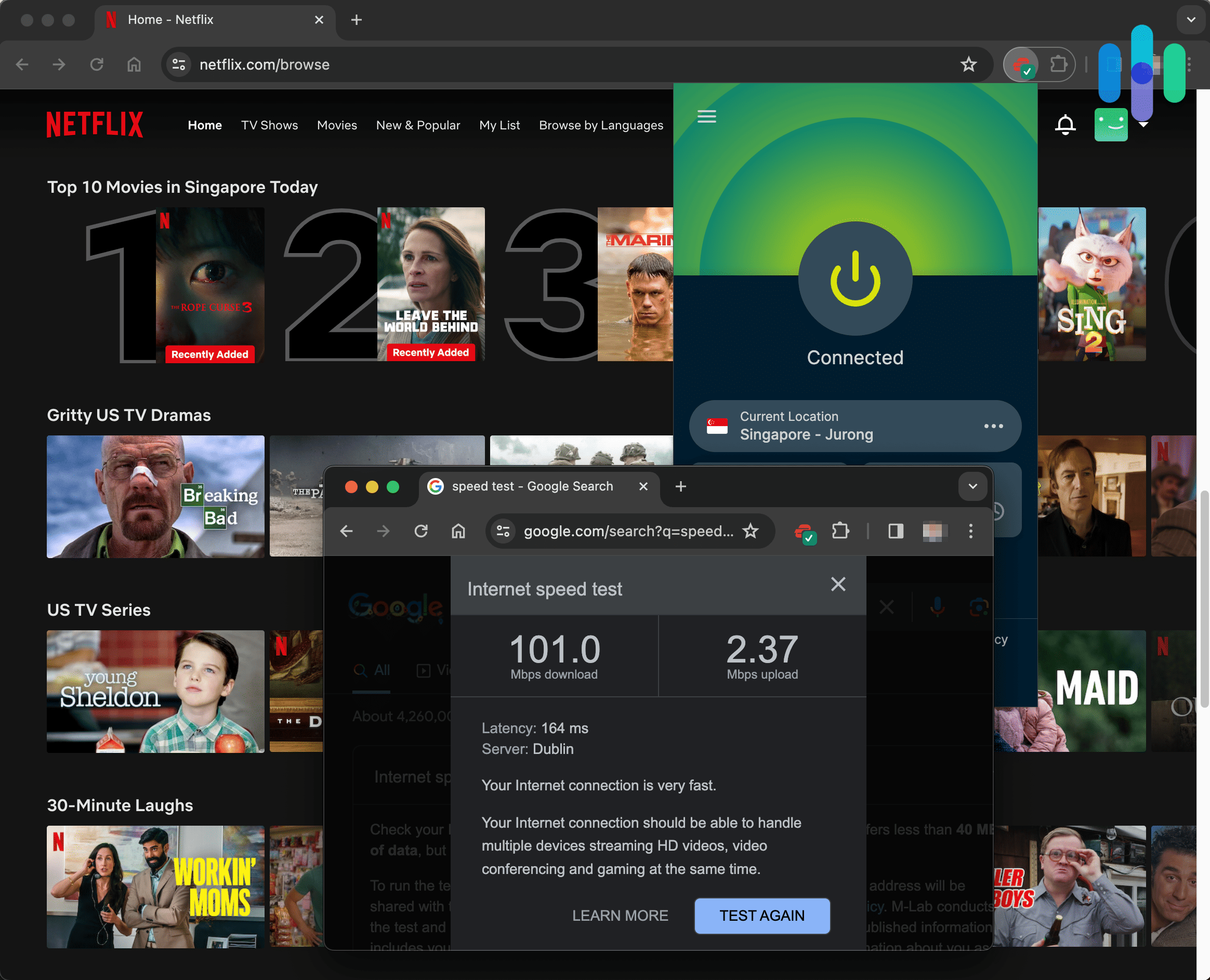
Through the Speedtest.net tool, we’re able to test each VPN’s upload speed, ping (latency), and download speed. All tests are performed within a one- or two-minute window to ensure accuracy, first with the VPN and then without. Download and upload speeds are measured in Mbps (megabits per second), while latency is measured in milliseconds. We record each and then convert it to a percentage. That’s easier to read, since Mac and Windows naturally have different connection speeds (Macs are usually much faster, in our experience).
Many things can alter or impact a speed test, including device type, operating system, and distance to the server. It’s safe to say there can be quite a bit of variance. In order to consider a VPN up to our standards, however, we need to make sure the speed tests have no more than a 40 percent difference in any of our categories.
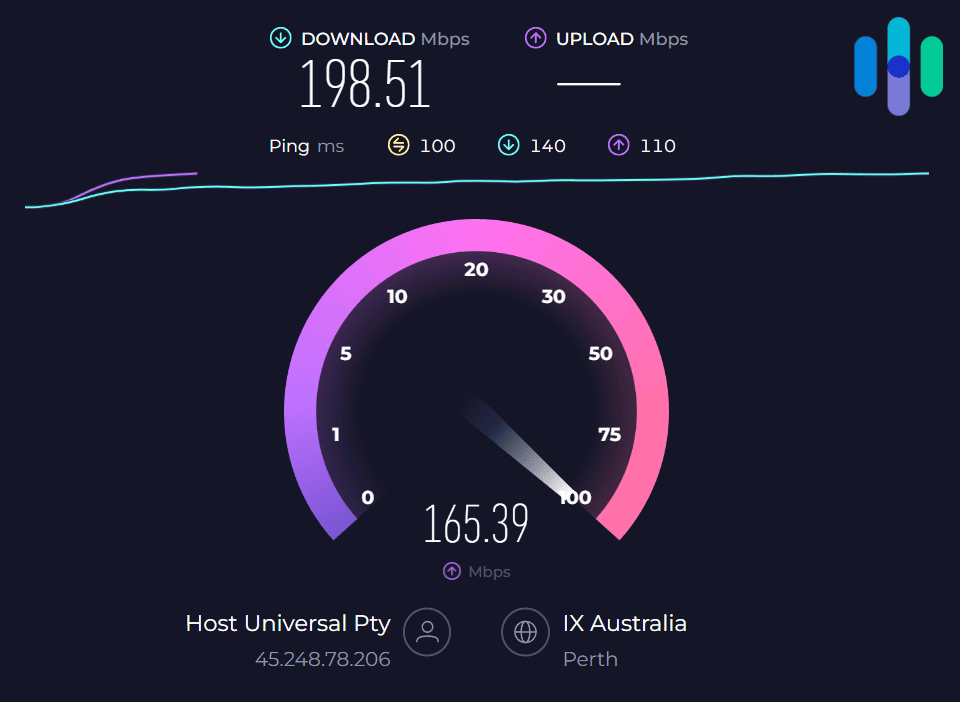
Security
Once we know the VPN is fast, it’s time to make sure all our data and traffic is kept under virtual lock and key. The goal of using a VPN is to keep your online activity away from anyone who may be interested in its contents, so we have to make sure our search history and IP address are fully obscured. IP address leaks can usually be attributed to a feature of many popular browsers (Chrome, Edge, and Opera) called WebRTC, which allows direct communication between browsers.
First we test for WebRTC leaks by using a publicly available tool provided by ExpressVPN. For extra comfort, we use a pretty straightforward method in which we look at the local and public IPv4 IP addresses to discover any potential WebRTC leaks. Then we jump back to another tool on DNSLeakTest.com to see if there are any leaks that could compromise our domain name server (DNS). A DNS is a translation of a web domain to an IP address, so it’s key that there are no leaks in a VPN.
That’s not all. We also scrutinize each VPN’s encryption methods. The goal is that they use a method as good or better than AES-256 encryption and OpenVPN. Those are the most secure encryption methods available, so if they build something better, we’d be impressed.
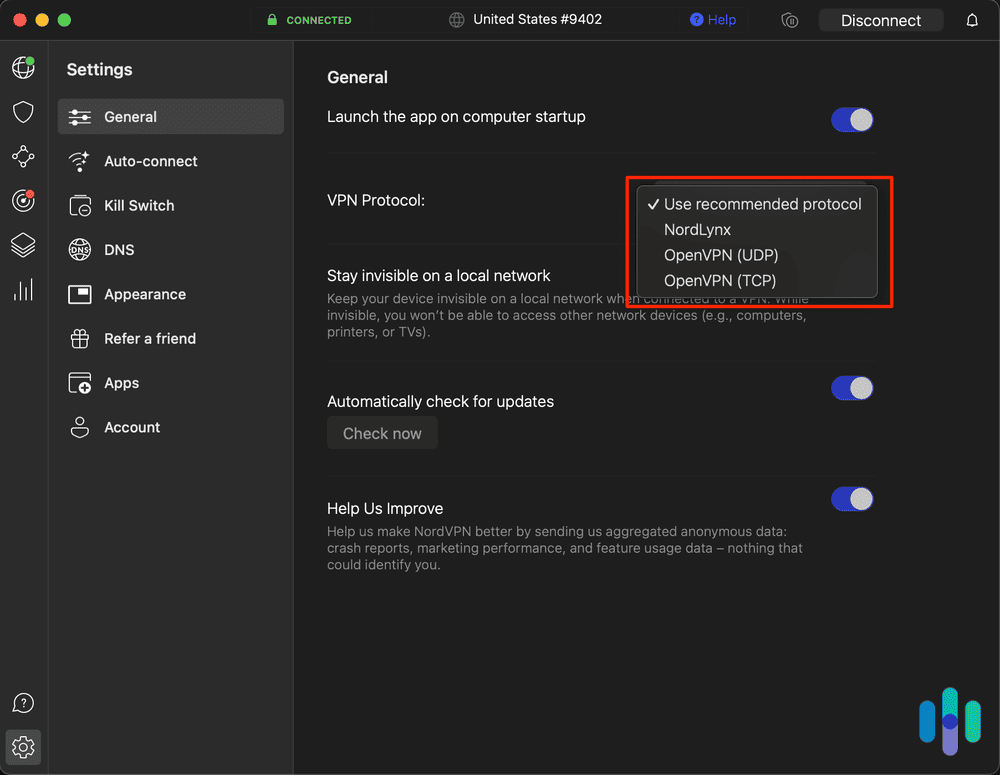
Our technical assessment ends by investigating which type of IP address connection the VPN offers. The gold standard checks two boxes: the IP addresses are unique and completely anonymized. Typically, the services that achieve these goals are VPNs with a dynamic IP address offering. That means the VPN provider shuffles the IP address each time we log in, giving us a unique identifier. This method makes it quite difficult to track any traffic. Second best is a static IP address, which should suffice for larger VPNs with hundreds of thousands of users sharing the same addresses. It is much easier for streaming services to block shared addresses, making static IPs less than ideal. We also check for the standard VPN failsafe: a kill switch. A kill switch will close out internet browsers if the VPN fails.
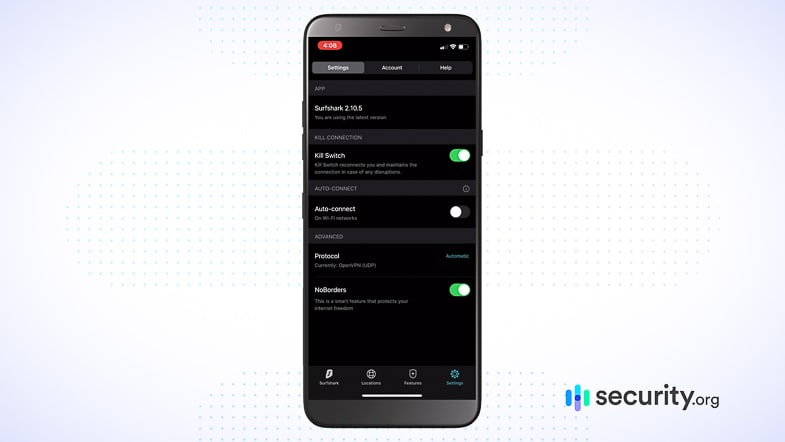
After some of the technical assessments are out of the way, we turn to the VPN provider itself. We’re looking for its data-logging policy and privacy jurisdiction. When it comes to VPNs, location is everything. Ideally, the VPN is not based in any country subject to the three major international surveillance alliances: Five Eyes, Nine Eyes, and 14 Eyes, which obligate companies to hand over customer data when requested by law enforcement. We’re looking for companies based outside the countries subject to those rules, and for those companies to retain only the basic information required to have an account. Anything beyond a name, email address, and payment info is too much data stored, in our opinion.
Subscriptions
It’s all about the Benjamins, baby! Just kidding — VPNs are usually fairly cheap, so if you’re spending Benjamins, you should read a bit more about the best VPN Black Friday deals. Our aim is to give readers a one-stop shop for cost information without the obscured fees you sometimes get on vendors’ sites. We look for VPN deals, for pricing, and especially for VPNs with free trials and money-back guarantees. We’re money-saving machines here at Security.org. A typical VPN costs between $5 and $15 per month, so on top of the dollars and cents aspect, we also inspect what each subscription actually entails. Some additional perks could be more device connections, more server connections per day, and features such as multihop. From the free option to the paid options, we have you covered.
Split Tunneling and Multihop Encryption
Another key feature of the best VPNs is split tunneling, a capability that allows users to simultaneously use both the VPN and a public network. We also check to see if a VPN uses double or multihop server connections, where the software encrypts data multiple times through multiple servers. Surfshark’s multihop feature worked well for me the last time I was in Europe, for example, but that’s because it routes traffic through the Netherlands. This feature helps VPNs stand out from the crowd, but keep in mind that using it will degrade your performance considerably.
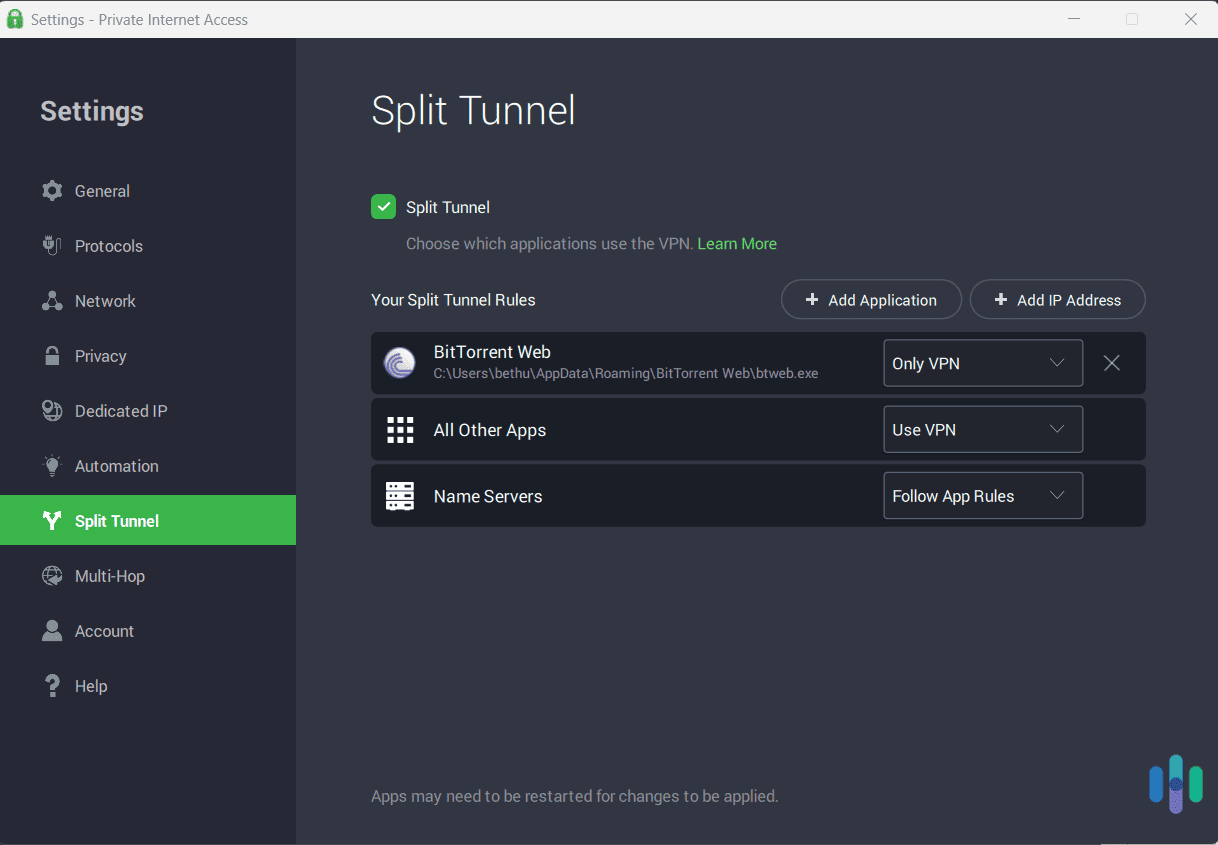
Customer Support
Unless you’re a whiz at Google or super technically capable, even the best products require an occasional call to customer support. We stress-test each VPN provider’s customer support to see if they can handle even the most high-maintenance clients. If a VPN offers 24/7 online chat or a dedicated support line, they’re usually great — but anything that takes more time, such as a ticketing system, usually scores a bit lower. We also appreciate over-the-phone support, a rarity among VPN providers. If any VPN companies are reading this: Don’t forget to write an FAQ section! Those are super useful as well.
Torrenting and Netflix
Torrenting and streaming are two of the biggest reasons to be online, which is why we stress the quality of streaming connections so heavily in our VPN reviews. Not to mention, streaming companies are always trying to block VPNs in order to comply with their licensing agreements, so we’re always looking to see which providers beat those restrictions.
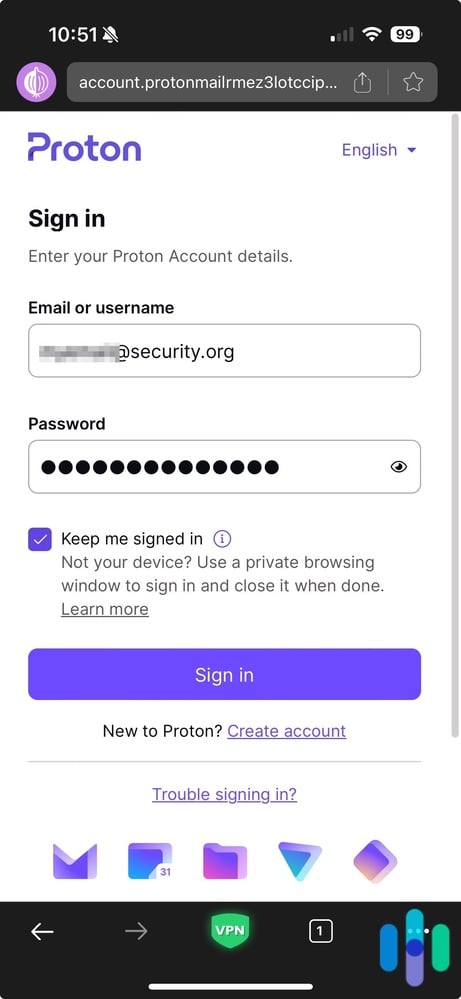
» Learn more: How to Use a VPN for Torrenting
App Quality
Finally, we review each VPN provider’s mobile apps. We’re looking at both Android and iPhone capabilities, app store ratings, and our user experience. If a VPN’s app is rated below three stars in the App Store or Google Play Store, it’s disqualified from being recommended.
>> Read Also: Best VPNs for iPhone
Recap
To bring it all home, I always recommend using a VPN when you travel, especially if you’re going to be using public Wi-Fi in your hotel, at the airport, or when you’re out and about in restaurants, museums, and the like. You never know who’s sharing that network with you, and what their intentions are. The best way to stay anonymous while using one of those networks — or any network — is to use a VPN.
If you’re going to Japan specifically, you’ll want a VPN provider with a large footprint in the country. That will ensure your performance isn’t degraded, and you’ll actually use the service instead of becoming frustrated by it. I also recommend thinking about any other features you may want before you travel. If you want a strong VPN for your phone, for instance, you may want to look at Surfshark. If you want a more well-rounded experience, NordVPN may be right for you.
At the end of the day, you want to prioritize your safety when you travel. You lock your passport in the hotel safe before you go out, right? So lock up your data using a strong VPN too.
FAQs
If you’re still with us after all that, you probably have some questions! Or maybe you like to read from the bottom up. Whatever suits your fancy, here are some top questions about VPNs and, specifically, VPNs in Japan.
-
Are VPNs legal in Japan?
Yes, VPNs are legal to use in Japan and the internet is generally unrestricted.
-
Which VPNs have Japanese servers?
The best VPNs with Japanese servers are NordVPN, Surfshark, CyberGhost, Private Internet Access, ProtonVPN, and PureVPN.
-
Are there free VPNs with Japanese servers?
Yes, ProtonVPN has a free VPN with access to Japanese servers. Its free version also includes access to French and U.S. servers.
-
Do I need a VPN when traveling?
Yes, you need a VPN while traveling, especially if you do not have active cell phone service. If your plan is to ping from public Wi-Fi option to public Wi-Fi option, you could be a target for data thieves. VPNs can also help you navigate government restrictions while traveling.
-
Are VPNs expensive?
No, VPNs generally are pretty affordable. Expect to pay anywhere from $5 to $15 per month for your service, depending on its features and your subscription duration.


